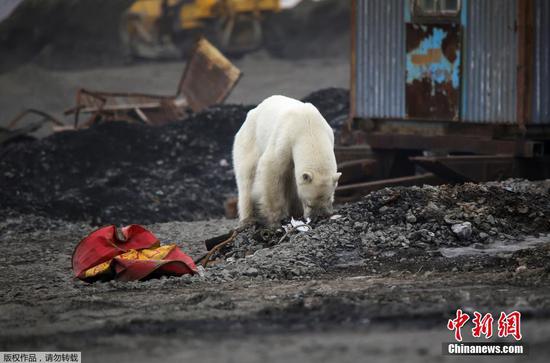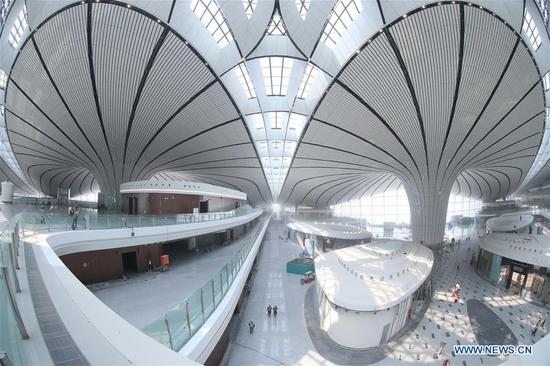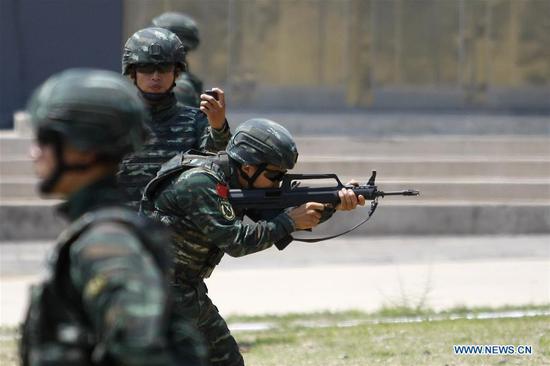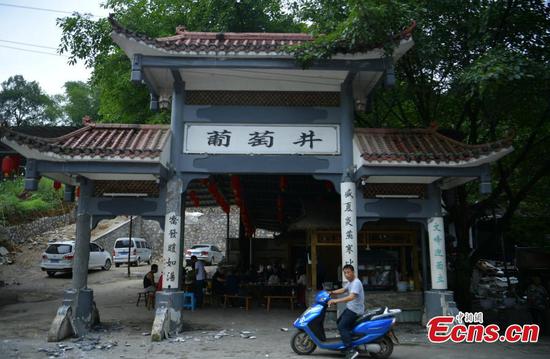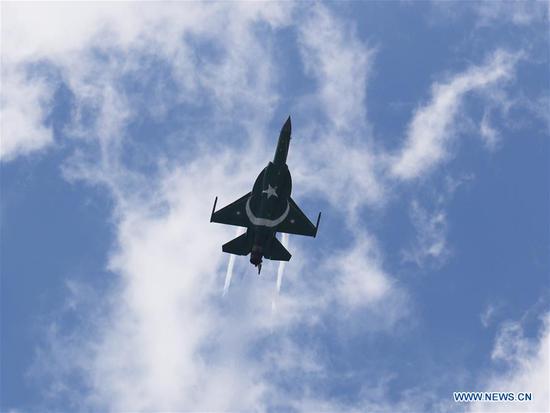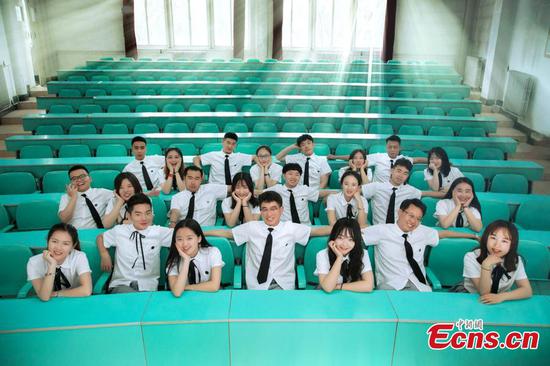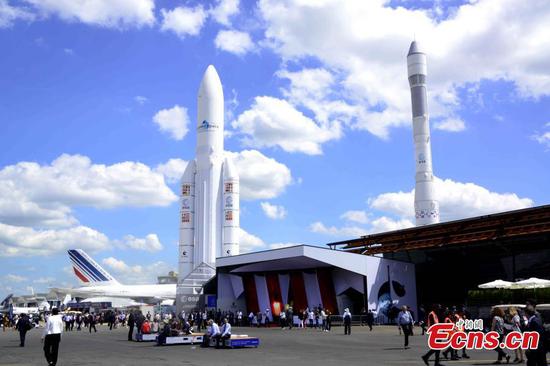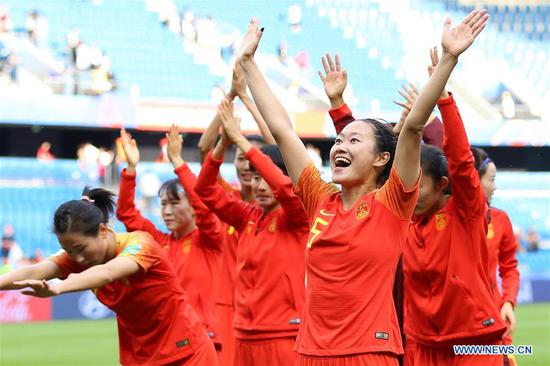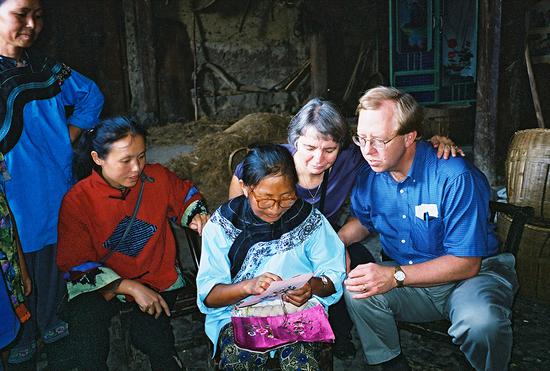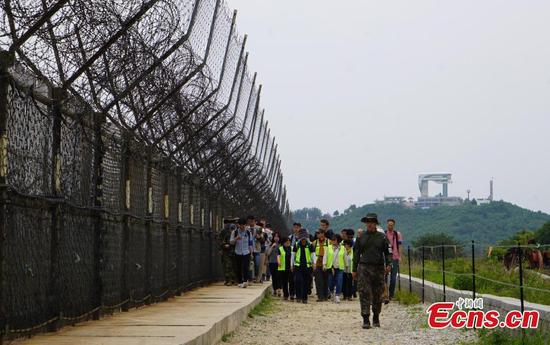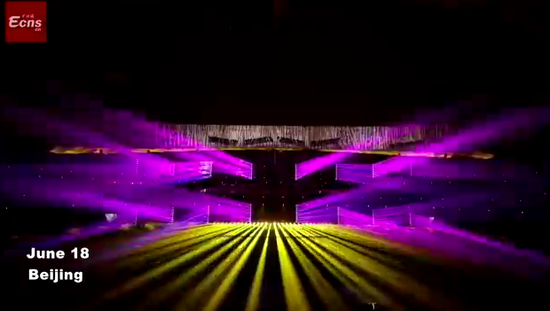
A staff member works on a design at a high-tech material company incubator in Gu'an county, Hebei province. [Photo/Xinhua]
With the CSRC in charge of both market regulation and IPO application reviews under the approval-based system, administrative controls, such as the unspoken price-earnings ratio cap of 23 for IPOs and pauses in IPOs to mitigate market downturns, were more likely to be overdone, Dong said.
The registration-based system has adopted a more reasonable division of tasks, with the exchanges handling reviews of IPO applications and the CSRC focusing on market regulation.
But the most substantial change in the registration system, Dong said, is that it enables companies to go public whenever they satisfy the IPO standards and file the necessary application documents.
According to the STAR Market's trading rules, released at the beginning of March, companies that have not yet reported a profit will be allowed to go public on the new board as long as they satisfy one of five financial indicators.
While the A-share market's other submarkets all require at least three years of profitability, the STAR Market does not consider profit mandatory, making it just one of five factors considered. The others are: investment on research and development, cash flow, estimated market cap, and approval from central regulators for certain products.
Zhao Haizhou, associate partner at Deloitte's East China A-share department, said that change in the listing rules will be extremely attractive to "hard technology" companies.
Such companies used to find it difficult to obtain financing from banks because most had minimal assets. The amount of preliminary investment in them is huge, but is unlikely to be returned in a decade, he said.
"The new tech board will provide a more convenient financing channel for technology companies," Zhao said. "Investors, on the other hand, will not miss the opportunity in rising technology companies."
The new board will also allow dual-class share structures, widely used by tech companies to ensure their founders remain in control despite large-scale equity financing.
Fu Lichun, research director at Northeast Securities, said the stock exchange in Hong Kong changed its trading rules to allow such structures in April last year, and the change adopted by the new tech board in Shanghai will help the Chinese capital market see more listings by technology companies.
Northeast Securities estimates that about 100 companies will be listed on the STAR Market by the end of this year, with total financing of 100 billion yuan ($14.4 billion).
As the market will have the right to say whether a listing will proceed under the registration system, securities firms will shoulder more responsibility in terms of research, compliance, and risk management.
That will see the Chinese securities industry give greater emphasis to brokerages' investment bank competence, according to Cai Yong, chairman of Guoyuan Securities.
"Securities firms' abilities in pricing, sales, evaluation and research are given more stress with the new board and the registration system," he said. "Their income will no longer be largely reliant on underwriting fees, but on other businesses such as private equity investment."
Cai said this meant the industry would become more polarized, with the good brokerages getting better and the bad ones getting worse. The leading companies "will breed new profit models", he said.
Wang Jiang, a professor at the Shanghai Advanced Institute of Finance at Shanghai Jiao Tong University, said financing through the stock market may not necessarily be the primary goal of public companies, with self-owned capital and debt-financing the most frequently used tools.
"In this sense, the launch of the STAR Market will form a pricing mechanism based on market rules," he said. "The pricing mechanism will help listed companies finalize their investment strategies and seek other financing possibilities."
Bi Mingjian, chief executive of China International Capital Corp, said China has never been short of the right targets for a tech board. The number of hotly pursued Chinese companies listed in the United States proved that. The only problem was that the China's capital market was not able to provide the financial services such startup companies needed.
"The launch of the STAR Market comes at the right time because China's economic status has provided all the necessary elements," he said. "With this, the long-awaited capital market reform will also be truly unveiled."
Huston Huang, head of China global investment banking at J.P. Morgan, said the STAR Market will be complementary to the other boards in the A-share market, as well as to the Hong Kong and U.S. markets. And STAR Market-listed companies may also seek IPOs in the Hong Kong and U.S. markets in the future, he said.
Michelle Qi, chief investment officer for equities at Eastspring Investments in China, said the launch of the STAR Market will be a good opportunity for the A-share market, which was unable to list companies like e-commerce giant Alibaba and internet behemoth Tencent due to earlier market rules.
"Hopefully, we may be able to see companies like (group-buying website) Meituan Dianping or (e-commerce platform) Pinduoduo listed on the new board," she said.
Meituan Dianping is already listed in Hong Kong, and Pinduoduo is listed on the Nasdaq board in the U.S..












